Best Supplements For Beautiful Skin
What if beauty is as simple as eating medicine?
Almost every day we face the latest pill, beverage, powder or cream that promise to find a way to contain the spring of youth.
Such things are very expensive.
In addition to the minerals and vitamins we already have, what ingredients and supplements have proven to improve the vitality and beauty of our skin color?
What is exaggerated advertising? Is it always the best way to eat pills, or does the supplements get better results? Here is the answer!
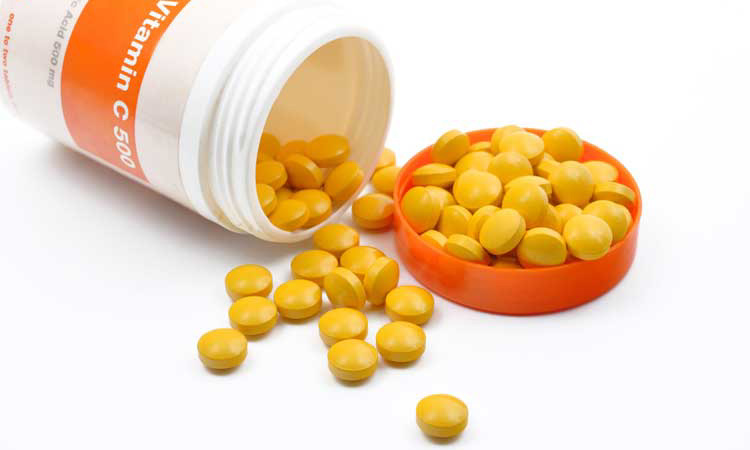
Vitamin C
Vitamin C is essential for the health of our skin and is a key ingredient in many topical antioxidant serums and lotions.
Vitamin C, which plays an important role in collagen formation, is a powerful antioxidant essential for wound healing and can help the body prevent damage from ultraviolet radiation exposure.
But will it make you look beautiful? According to the American Journal of Clinical Nutrition, yes.
A 2008 study of 4,000 middle-aged British women showed that the higher the intake of vitamin C, the less the skin dryness and wrinkles.
Unlike most other animals, humans can not synthesize vitamin C.
In other words, it should be taken on a regular basis to gain health benefits and prevent scurvy.
Scurvy, once plagued sailors in the oceans, is a vitamin C deficiency and may appear within 4 weeks and exhibits severe symptoms such as gingival bleeding, connective tissue weakening, capillary damage, skin thickening, poor wound healing, and eventually death.
The good news is that you can easily get all the vitamin C you need, from eating foods, including vegetables and fruits.
If you are not satisfied with your diet, Vitamin C supplements are a smart idea for adult women who are recommended to consume an additional 75 mg / day, especially smokers who are recommended to consume 35 mg / day.
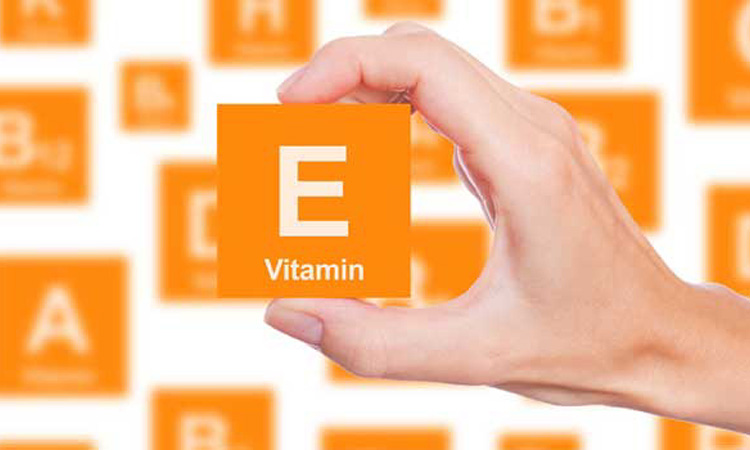
E Vitamin
Vitamin C works better with your body teamed up with your favorite dance partner, E vitamin.
Naturally found in many seeds, oils and nuts, E vitamins act as antioxidants in the body to protect cells from free radical damage and premature aging.
Although it may be sufficient to use vitamin supplements in the mouth, there is much controversy about whether oral vitamin supplements are healthful.
There are some studies that show that this can cause to prostate cancer and death.
But applying it topically is a completely different matter.
E Vitamins are rapidly absorbed into all layers of the skin when topically applied, but taking oral can take up to 7 days to reach the skin.
Topical E vitamins are mostly destroyed when exposed to sunlight, but when mixed with vitamin C, both antioxidants synergize to eliminate wrinkles and prevent sun damage and skin cancer.
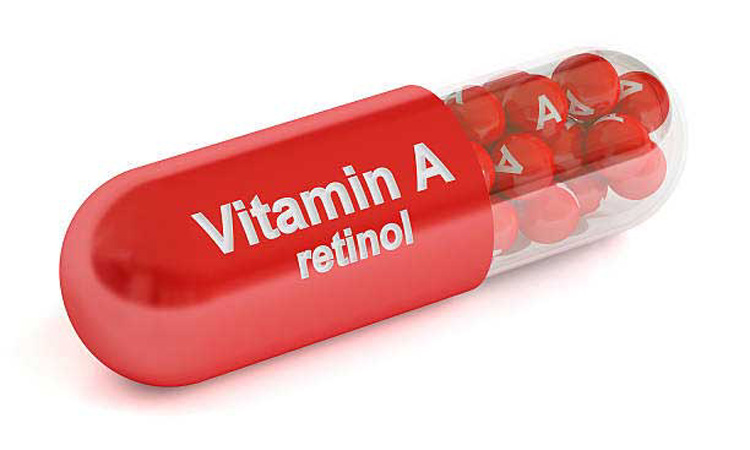
A Vitamin
Vitamin A is a fat-soluble compound, also known as retinol.
Retinol is essential for healthy vision, cell growth and immune function.
Deficiency is rare, but vegetarians may be lacking due to the fact that vitamin A is found only in animal foods.
The body can also synthesize beta-carotene in vegetables. In terms of skin health, the actual wonders come from replenishing vitamin A not orally, but topically.
Considered to be the most important standard in the anti-aging industry, retinol is available as prescription products that contain strong retinoic acid.
Counter products are also slowly converted to retinoic acid when applied to the skin.
Although the results of prescription products are faster, they are known to stimulate the skin, so starting with a drugstore brand and increasing resistance to retinol can be a wise way.
But is all the trouble worth it? Yes. Prescription Retin-A and Tretinoin and Counter Retinol increase skin cell turnover and stimulate collagen synthesis.
Consistent use of topical retinol or Retin-A can lead to improve wrinkles, dark spots, texture, and tone.
Isn't this too good to be true? Here's the catch - the anti-aging effect of retinol does not occur overnight.
By 24 weeks, patients will see dramatic and significant improvements.
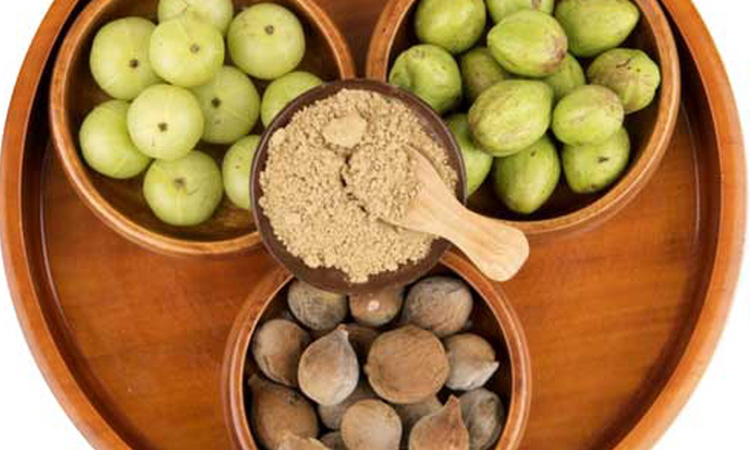
Triphala
Of course, if you are not familiar with the mind-body science of Ayurveda, you probably have not heard of Triphala.
What is this exactly? Triphala is an old Ayurvedic herbal remedy consisting of a combination of three plants: amalaki, haritaki, bibhitaki.
The classic Ayurveda document, Charaka Samhita, says that if you eat this every day, you can live for a hundred years without old age and illness.
According to Dr. Sheila Patel, chief medical officer of the Chopra Center, triphala has traditionally been used as an antidote, rejuvenator and mild laxative.
Your doctor prescribes prescriptions for a number of diseases, including obesity, allergies, liver problems, ophthalmologic diseases and skin inflammation.
Scientific studies show that the synergy of the three fruits known as triphala has a positive effect within the body, especially anti-inflammatory, analgesic, anti-bacterial and wound healing powers.
But will the skin get better? Yes. Medical journal, Foods and Dietary Supplements in the Prevention and Treatment of Disease in Older Adults, reports that Triphala provide a cosmetic effect and improve skin tone and skin color.
The journal states that triphala can stimulate collagen production, prevent skin infections, and fight the graying of hair.

Omega 3
Omega-3 is an essential fatty acid found mainly in sea food, also found in some nuts, seeds, vegetables and oil.
Omega-3 fatty acids, long-term nutritional supplements, have been scientifically proven to improve eye health, improve depression, prevent autoimmune conditions, prevent mental decline associated with aging, and improve the health of bones and joints.
Extra Bonus: They will also contribute to beautiful, radiant skin.
Omega-3 acid DHA is a major structural component that keeps skin membranes healthy and supple.
Another member of the Omega-3 family, EPA manages the hydration system of the skin, prevents premature aging, combats acne and stops inflammation of the hair follicles.
But exactly how much do you need to enjoy the effects of Omega-3?
The key is to maintain an adequate balance between omega-3 fatty acids and omega-6 fatty acids.
Both are important to our bodies, but Americans consume too much Omega-6 in our standard diet.
"We need to reduce the intake of omega-6 found in unhealthy foods and consume a lot of omega-3s found in oily wild fish," said Dr. Andrew Weil, M.D, and director of the Arizona Unified Medical Center.
Two to three servings per week is the best. As a supplement, he recommends a product that provides at least 700 mg of EPA and 200 mg of DHA every day.
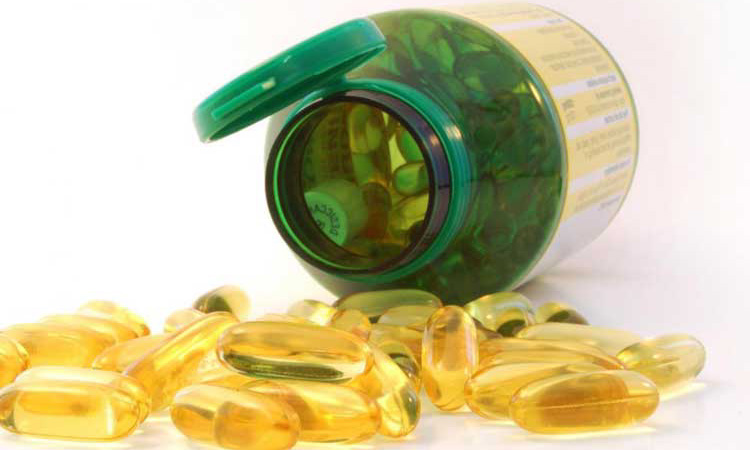
GLA oils
Although we are already eating too much omega-6 in the diet, there is one type of omega-6 fatty acids that we have difficulty ingesting.
Gamma-linolenic acid or GLA is an omega-6 fatty acid found in plant oils such as hemp oil, spirulina, and the oils of plants like borage, black currant, and evening primrose.
GLA is an effective anti-inflammatory agent recommended for arthritis, autoimmune diseases, premenstrual syndrome and healthy growth of skin, hair and nails.
Weil recommends supplementing evening primrose oil or black currant oil 500 mg twice a day, but it is advisable to avoid borage oil supplements that can cause liver toxicity.
Evening primrose oil is a plant extract derived from wildflower seeds.
It is a powerful anti-irritant as well as a skin emollient (hydrating), which suggests it may have a significant anti-inflammatory effect on the skin.
Like other herbal supplements, you need patience.
A study published in the International Journal of Cosmetic Science has reported the effect of primrose supplements every night in healthy adult populations.
The researchers found no benefit to the participant's skin after a month, but reported a significant improvement in skin elasticity, elasticity and humidity after 12 weeks of use.
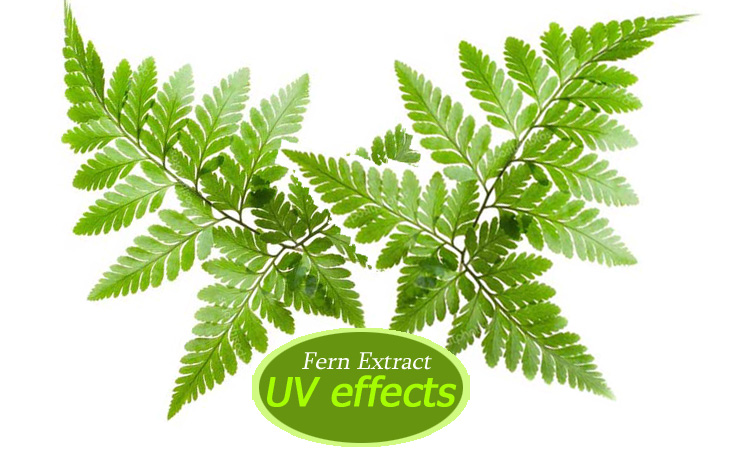
Fern Extract
Did you know that the UV effects we receive on a regular basis can contribute up to 80% of visible signs of aging? So by all means, wear your hat and sunscreen.
What about sunscreen pill that can protect your skin from the harmful rays? It turned out.
Polypodium leucotomos is an extract of Central American plants.
Studies in the American Academy of Dermatology show that supplementation of the fern extract can not only prolong the exposure time to ultraviolet light before burning but also cause a disease called polymorphous light eruption, which is a disease that causes an itchy rash when exposed to sunlight.
We do not know how the sunscreen pills work, but the main understanding is that polypodium leucotomos acts as an antioxidant to protect the skin from skin damage caused by sunburn oxidation.
Sunscreen provides a sun protection equivalent to SPF 3-5 levels.
If someone wants to take sunscreen, they should protect their skin by looking for shade, wearing protective clothing, and applying sunscreen.
There have been remarkable results, but more research needs to be done to get used to the best ways to take advantage of these drugs and long-term safety.
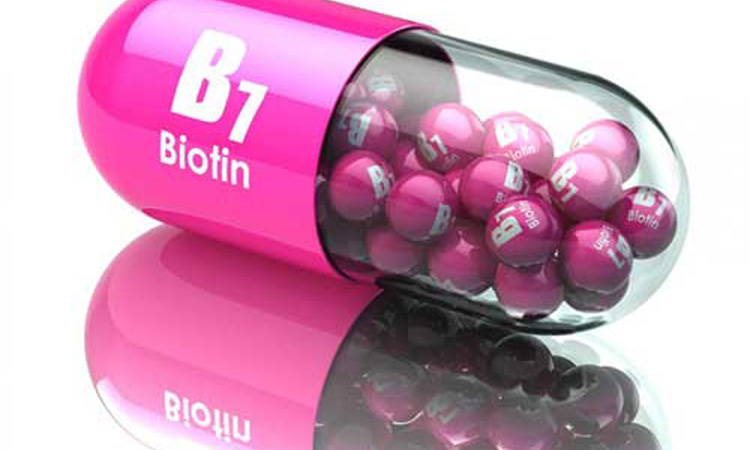
Biotin
Biotin is a water-soluble vitamin that can be found in the B-complex family.
It is also known as B7, sometimes called the old name, vitamin H or coenzyme R.
Biotin has been known for a long time as a miracle supplements for hair, skin and nail care, and is a component of many over the counter beauty products. But is this hype?
The answer is controversial. A lack of biotin means that hair falls off, brittle nails are formed, and cause cradle cap in babies, indicating that vitamins are essential to the health of hair, skin and nails.
However, deficiency of biotin is very rare. In a lot of the foods we likely eat frequently, such as eggs, cheese, nuts, beans, and leafy vegetables.
Our bodies also can synthesize a small amount of it per day.
Excessive water soluble vitamins are excreted in our urine, and there are no known toxicity levels of biotin, making them a safe supplement to try.
But the truth is that there are very few studies showing that this ingredient makes a difference between people who are not deficient.
According to the most promising research, it'll assist with brittle nails, and a high intake is thought to be effective in treating multiple sclerosis.
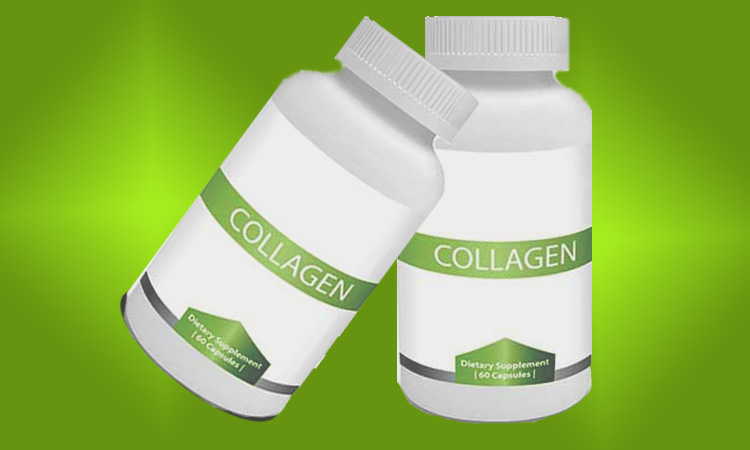
Collagen
Collagen is the most abundant protein in the human body. It provides building blocks for bones, tendons, ligaments, teeth, muscles, and skin, the largest organ of the body.
Our body produces collagen every time we ingest a certain amount of minerals, vitamin C, and protein, but as we get older, our bodies produce less and less, and lose skin suppleness and firmness.
So how about complementing collagen to make your skin beautiful?
Animal proteins, especially bone broth, gelatin and animal skin, are very high in collagen.
But if we eat more of them, does it turn from our bodies into more collagen? What about all the collagen supplements found in pills, powders and beverages?
A common criticism of collagen supplements is that collagen breaks down as soon as it hits the stomach.
As physician Dr. Karen Grossman explained to Vogue, it is difficult to determine how much collagen is absorbed into collagen and how much the body rewrites.
More research is needed to figure out what these products might have on our bodies.
However, studies show that collagen supplementation can improve skin quality if the correct type of collagen is ingested.
Both hydrolyzed collagen and gelatin are classified as highly bioavailable peptides and have been shown to be effective both orally and topically, and to improve skin elasticity and moisture.

What does this mean to you?
Are you happy now to add dietary supplements to your beauty regimen?
Before you jump into the new pile of supplements, you should consider the following recommendations in choosing which supplements are right for you.
Quality for health supplements is very important, so look for reliable and reputable brands.
The cheapest pharmacy vitamins are not necessarily the most efficient.
When purchasing herbal supplements, look for standard formulations containing a certain amount of herbal ingredients.
High quality herbal supplements are certified by organizations such as The United Natural Products Alliance, NSF International, or The US Pharmacopeia.
If you are currently taking any medication, consult your doctor because here are possible drug interactions with over the counter vitamin and herbal supplements.
Remember that you will need patience when you start taking supplements.
It can take two to three months to see and feel the changes that may occur due to supplementation if taken continuously.
But for your most gorgeous skin, it will surely be worth it!
Recent Posts
-
The Power of Exosomes in Skincare
Exosomes in Skin Care: The Future of Exosome and Regenerative Medicine in Skin Science Skincare inn …Oct 17th 2025 -
Steps for a Skincare Routine
6 Steps to a Proper Skin Care Routine: Your Esthetician-Approved Guide to The Best Skin If you've ev …Aug 11th 2025 -
Treatment of Hyperpigmentation
How to Treat the Appearance of Hyperpigmentation This Summer: Your Complete Guide Summer sun is wond …Jul 17th 2025




